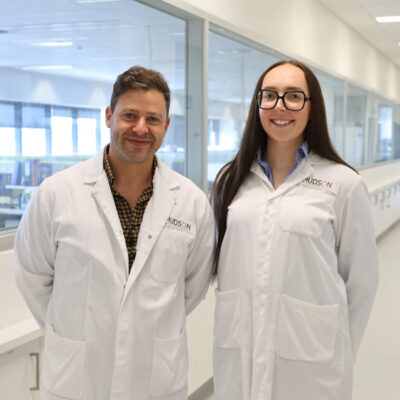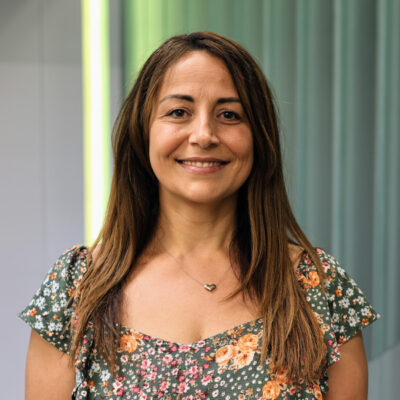Finding and treating newborn brain injury
By Rob Clancy, staff writer
The devastating effects of newborn brain injury are well known, and Professor Suzanne Miller’s aim is to be able to detect and treat those injuries in time to make a difference.

In her new role as head of The Ritchie Centre Hudson Institute, Prof Miller is guiding teams of researchers working on both prevention and cure of these critical conditions.
On top of her own distinguished career as a neurodevelopmental physiologist and researcher, Prof Miller is now leading several teams doing groundbreaking work in this area.
Prevention and cure of newborn brain injury
There’s an alphabet of lifelong conditions to prevent, ranging from cerebral palsy (CP) to bronchopulmonary dysplasia (BPD) and necrotising enterocolitis (NEC) to autism and ADHD, all of which become more likely when a baby is born prematurely, or with other complications that cause neonatal brain injury.
The key, and Prof Miller’s ultimate goal, is identifying the danger signs as early as possible.
And with neonatal medicine increasing the survival rate of the most vulnerable babies, she predicts an increase in the number of children with adverse long-term outcomes.
“There is certainly a knowledge gap in identifying those more subtle brain injuries early enough to make a positive difference,” Prof Miller said.
“These children have a higher likelihood of learning difficulties at school, but we’re not very good at identifying them before they get to school age.
“It would be fabulous if we were able to identify brain injury in newborn infants as early as possible, so that the interventions we’re developing – whether that’s stem cells or anti-inflammatories or melatonin could be implemented ASAP.”
Lack of funding impedes progress
The Ritchie Centre is currently running clinical trials on two of these treatments, but as with all their research, the number-one impediment to serious progress is lack of funding.
“We have talented mid-career researchers who have established their research careers and are doing fabulous work, making huge progress, and we simply can’t get funding for their salaries,” Prof Miller said.
“They will have spent at least 30 per cent of their time this year applying for funding – effectively competing against each other, but if we had enough money they would all just be getting on with their research.
“What could we be achieving then?”
“Please support our researchers so they can continue making progress in the prevention of newborn brain injuries with a gift to our Infants’ Health Appeal today.
Newborn brain injury facts
- Every 15 hours, an Australian baby is born with a brain injury that underlies cerebral palsy.
- Up to 1 in 10 babies require help to breathe in the first few minutes of life.
- In 13 out of 14 cases in Australia, the brain injury leading to cerebral palsy occurs either in the uterus or before 1 month of age.
Contact us
Hudson Institute communications
t: + 61 3 8572 2761
e: communications@hudson.org.au
Hudson News Summer 2022
- Women’s and Newborn health
- Birth asphyxia
- Bronchopulmonary dysplasia
- Cerebral Palsy
- Necrotising enterocolitis (NEC)
- Inflammation
In this article
About Hudson Institute
Hudson Institute’ s research programs deliver in three areas of medical need – inflammation, cancer, women’s and newborn health. More
Hudson News
Get the inside view on discoveries and patient stories
“Thank you Hudson Institute researchers. Your work brings such hope to all women with ovarian cancer knowing that potentially women in the future won't have to go through what we have!”












